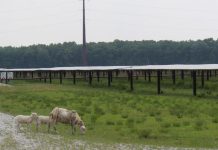EPA, USDA, And FDA Renew Formal Agreement Aimed At Reducing Food Waste
“We’ve seen great strides in food loss and waste reduction since first entering the joint agency formal agreement with our Federal colleagues, and through collaborative efforts with our public and private partners,â€Â said  FDA Commissioner Stephen M. Hahn, M.D. “At FDA, we’ve encouraged food manufacturers and retailers to standardize the way quality-based date labels are used on packaged foods and developed videos and materials to educate consumers. With these continued partnerships and important efforts, we’re on track to see a 50% reduction of food waste by 2030.â€
As part of the Winning on Reducing Food Waste Initiative, EPA, USDA, and FDA issued its FY2019-2020 Federal Interagency Strategy in April 2019, which identifies six priority areas on which the agencies will focus their efforts to reduce food loos and waste in the U.S. In May 2020, the Federal Interagency Strategy was updated by listing contributing efforts for each of the strategy’s six priority action areas:
- Priority Area 1: Enhance Interagency Coordination
- Priority Area 2: Increase Consumer Education and Outreach Efforts
- Priority Area 3: Improve Coordination and Guidance on Food Loss and Waste Measurement
- Priority Area 4: Clarify and Communicate Information on Food Safety, Food Date Labels, and Food Donations
- Priority Area 5: Collaborate with Private Industry to Reduce Food Loss and Waste Across the Supply Chain
- Priority Area 6: Encourage Food Waste Reduction by Federal Agencies in their Respective Facilities
The agencies also launched partnerships with organizations at the forefront of food loss and waste reduction efforts. In April 2019, the agencies signed an agreement with ReFED, a network of the nation’s leading business, nonprofit, foundation, and government leaders committed to reducing U.S. food waste. In October 2019, another partnership with the Food Waste Reduction Alliance, formalized collaboration on education and outreach efforts with three major sectors of the supply chain: food manufacturing, retail, and restaurant and foodservice.




